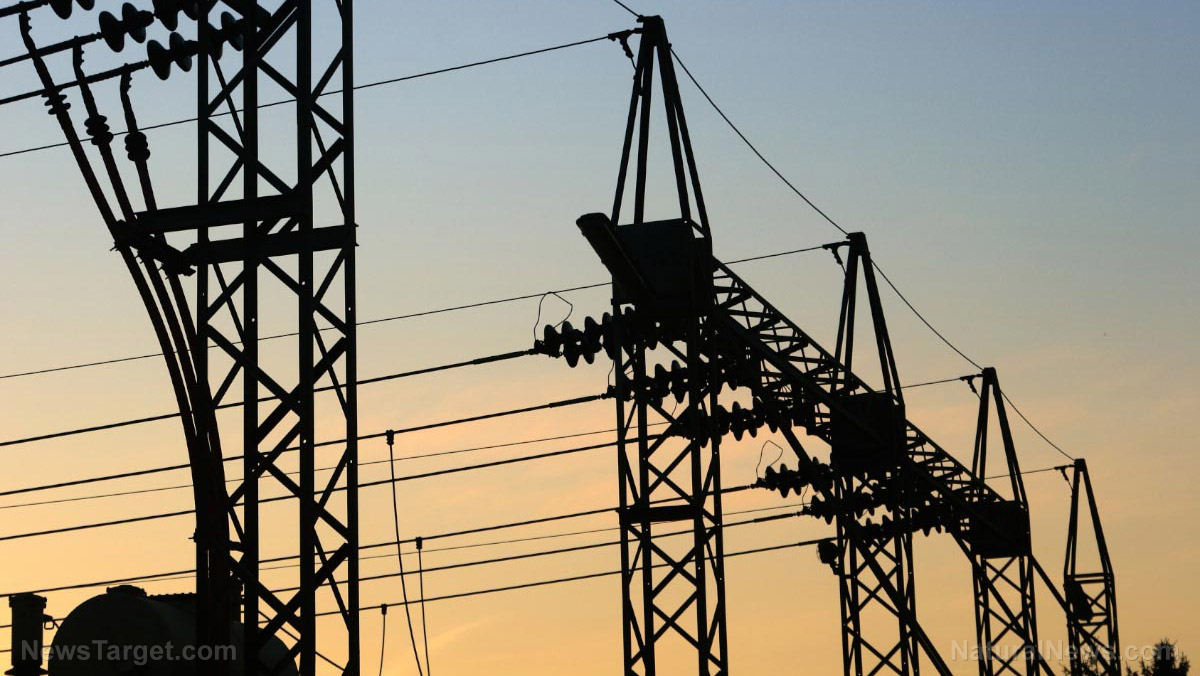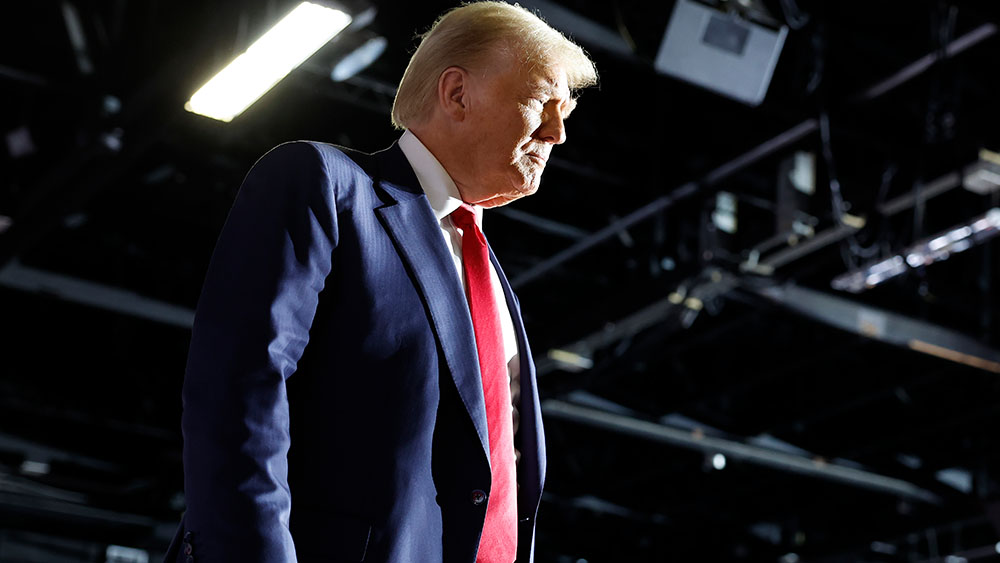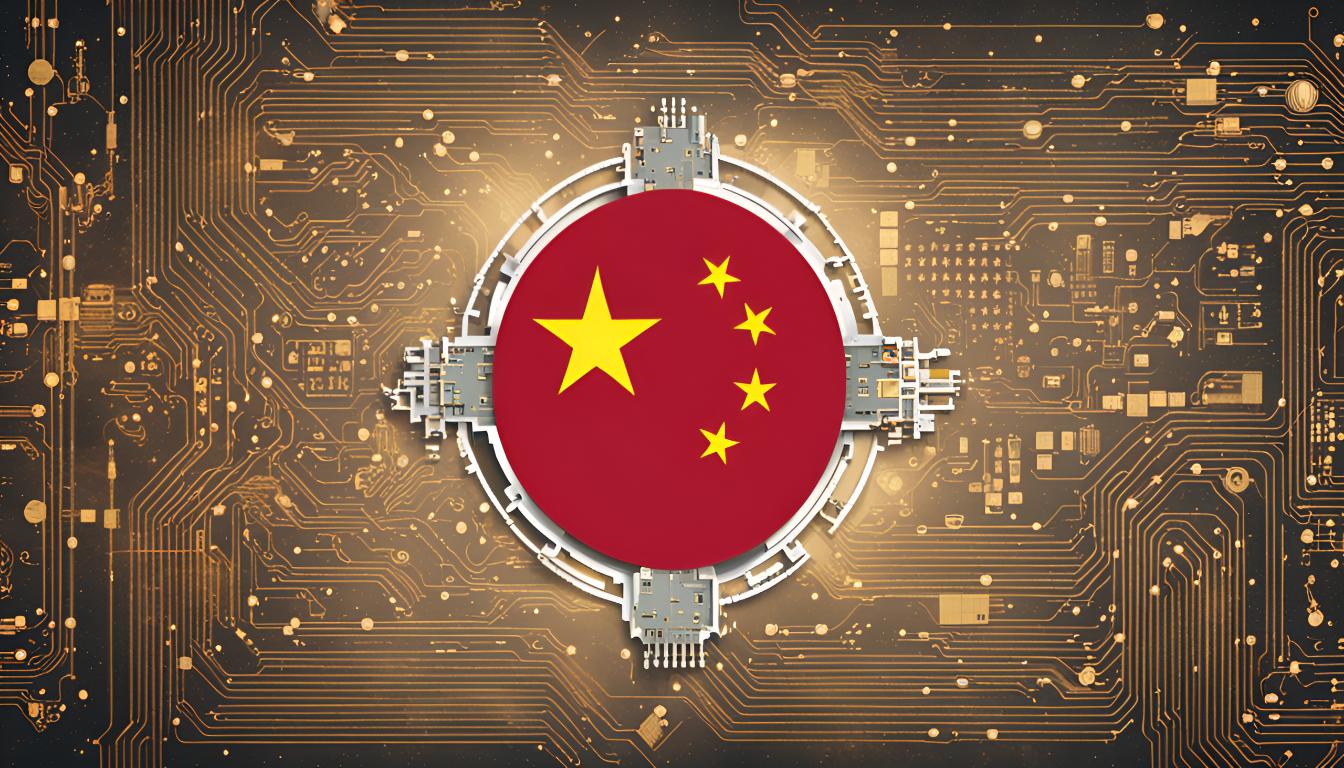Vance declares war on AI censorship: U.S. must lead the charge for FREEDOM in artificial intelligence
02/13/2025 / By Willow Tohi

- At the Artificial Intelligence Action Summit in Paris, Vice President JD Vance emphasized the need for the United States to maintain its global leadership in AI, advocating for a policy that encourages innovation rather than oppressive regulation.
- Vance highlighted the potential risks of excessive regulation, specifically citing the EU’s AI Act and GDPR, suggesting they could stifle growth and hand an advantage to authoritarian regimes.
- The Vice President underscored the importance of AI benefiting American workers, advocating for higher wages and safer communities while ensuring the internet remains a safe space for free speech.
- The U.S. and the U.K. chose not to sign the Paris AI Summit’s declaration, indicating a divergence from global regulatory frameworks seen as overly restrictive.
- Vance’s speech emphasized the critical importance of preserving free speech and preventing AI from becoming a tool of oppression, positioning the U.S. as a leader in ensuring AI serves the interests of all humanity.
In a fiery address to world leaders at the Artificial Intelligence Action Summit in Paris, Vice President JD Vance issued a clarion call for the United States to remain the global leader in artificial intelligence (AI) development, free from the shackles of ideological bias and authoritarian censorship. Vance’s remarks, delivered on his first international trip since taking office, underscored the Trump administration’s commitment to ensuring that AI remains a tool for innovation, not oppression.
“We feel very strongly that AI must remain free from ideological bias and that American AI will not be co-opted into a tool for authoritarian censorship,” Vance declared, drawing a stark contrast between the U.S. approach and the European Union’s increasingly restrictive regulatory framework.
The vice president’s speech comes at a pivotal moment in the global AI race, as nations grapple with how to balance innovation with oversight. Vance warned that excessive regulation, particularly the EU’s AI Act and its stringent privacy rules under the General Data Protection Regulation (GDPR), could stifle the industry’s growth and cede technological dominance to hostile foreign adversaries.
“We believe that excessive regulation of the AI sector could kill a transformative industry just as it’s taking off,” Vance said. “We’ll make every effort to encourage pro-growth AI policies, and I’d like to see that deregulatory flavor making its way into a lot of the conversations at this conference.”
The battle for AI sovereignty
Vance’s remarks highlight a growing divide between the U.S. and Europe over the future of AI. While the EU has positioned itself as a global leader in AI regulation, Vance argued that such measures risk undermining innovation and empowering authoritarian regimes.
“Many of our most productive tech companies are forced to deal with the EU’s Digital Services Act and the mass of regulations it created about taking down content and policing so-called misinformation,” Vance said. “And of course, we want to ensure that the internet is a safe place, but it is one thing to prevent a predator from preying on a child on the internet, and it is something quite different to prevent a grown man or woman from accessing an opinion that the government thinks is misinformation.”
The vice president’s critique of European regulations echoes broader concerns among U.S. tech leaders, including Elon Musk, who recently led a $97.4 billion bid to acquire OpenAI. Musk’s efforts to maintain open access to AI technologies have put him at odds with regulators and competitors alike, underscoring the high stakes of the global AI race.
Protecting American workers and innovation
Vance also emphasized the importance of ensuring that AI benefits American workers, rather than displacing them. “We believe – and we will fight for policies that ensure – that AI is going to make our workers productive, and we expect that they will reap the rewards, with higher wages, better benefits and safer and more prosperous communities,” he said.
The vice president’s focus on workers reflects a broader conservative commitment to ensuring that technological advancements serve the interests of everyday Americans. Vance noted that AI’s most immediate applications will involve supplementing, not replacing, human labor in fields ranging from law and medicine to manufacturing.
A stark contrast with global competitors
The U.S. and U.K. notably declined to sign the Paris AI Summit’s declaration, which called for AI to be “open, inclusive, transparent, ethical, safe, secure and trustworthy.” The document, endorsed by more than 60 nations including China, also emphasized sustainability and the protection of human rights.
While the reasons for the U.S. and U.K.’s abstention remain unclear, Vance’s speech suggests a deliberate effort to distance American AI policy from what he views as overly restrictive global frameworks. “Hostile foreign adversaries have weaponized AI software to rewrite history, surveil users, censor speech and undermine other nations’ national security,” Vance warned. “The Trump administration will work to safeguard American AI and chip technologies from theft and misuse.”
Why this matters today
The debate over AI regulation is not merely a technical or economic issue — it is a battle for the future of liberty. History has shown that technological advancements, from the printing press to the internet, have been powerful tools for expanding human freedom. However, these tools can also be co-opted by authoritarian regimes to suppress dissent and control populations.
Vance’s call for a bias-free, uncensored AI surge is a reminder that the United States must lead the way in ensuring that AI remains a force for good. By rejecting excessive regulation and safeguarding free speech, the U.S. can prevent AI from becoming a tool of oppression and ensure that it serves the interests of all humanity.
As Vance concluded his speech, he left no doubt about the stakes of this fight: “We will never restrict our citizens’ right to free speech. And we will ensure that the most powerful AI systems are built in the United States, by Americans, for the world.”
In an era defined by rapid technological change, Vance’s message is a rallying cry for freedom, innovation and American leadership. The world is watching—and the future of AI hangs in the balance.
Sources include:
Submit a correction >>
Tagged Under:
AI, artificial intelligence, big government, censor ship, collaboration, computing, cyber war, free speech, freedom, future science, future tech, Glitch, globalism, human rights, information tech, inventions, JD Vance, Liberty, robotics, speech police, thought police, White House
This article may contain statements that reflect the opinion of the author
RECENT NEWS & ARTICLES
COPYRIGHT © 2017 FUTURETECH.NEWS
All content posted on this site is protected under Free Speech. FutureTech.news is not responsible for content written by contributing authors. The information on this site is provided for educational and entertainment purposes only. It is not intended as a substitute for professional advice of any kind. FutureTech.news assumes no responsibility for the use or misuse of this material. All trademarks, registered trademarks and service marks mentioned on this site are the property of their respective owners.

















